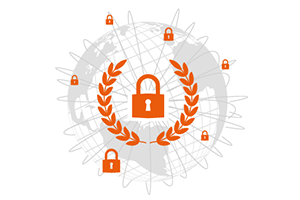By BAE Systems and Applied Intelligence
Last year, right at the start of the pandemic, engineers from across BAE Systems came together to develop the AirCare ventilator, which went from concept to functioning design in just a few weeks. As an example of teamwork in action, it’s hard to beat.
This type of collaboration should not be limited to a global health emergency, however. Collaboration within cyber is just as important. That’s because cyber security is a complex topic, one where we face incredibly capable adversaries ranging from cyber criminals intent on extorting business’ data, through to nation states intent on conducting espionage operations.
Tackling such challenges requires a combination of the right people, the right skills and the right technology – collaboration, in other words.
Strength in collaboration
The more organisations can work together the easier it is to be able to respond to the threat. This resilience stems from the fact they can count on mutual understanding and relationships between people who can work together in a crisis. It may be an overused cliché, but cyber-security really is a team sport. From those setting strategies, policies and frameworks, to those conducting forensic investigations in a computer’s active memory.
Identifying the links between two seemingly unconnected pieces of information is a hard challenge, but it’s key to building true resilience in an organisation. Technology may be an enabler here, but diversity and a breadth of skills is vital. Through a diverse and inclusive culture, we are able to consider angles that otherwise just would not have been possible before.
Diversity in cyber has a number of different aspects. It’s not just about encouraging a range of skill sets in cyber, but also greater gender diversity. Cultural diversity is of course vital too, while another important consideration is the international angle. When looking through the lens of a multinational organisation with a complex and global IT estate, you can’t just focus on protecting your data within your home country.
Take supply chains, for example. Unfortunately, in cyber security terms, you are only as strong as your weakest link, and that’s why a collaborative approach is vital. Any attack against an organisation within a supply chain, is likely to be an attack against all. Collaboration in resolving an incident and identifying lessons learnt is far more productive than actually improving everyone’s defensive postures. This team ethos, for me, is what resilience through collaboration is all about.
Find out more on their website.

